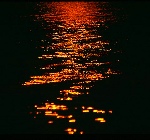Optimising a photo site before submission
When you look for the answer to a question, the search engine that you are using will look at its index and serve you the pages it finds most relevant.
How do they do that?
1.) They look at the links pointing to you
2.) They look at your page content
3.) some (like Alexa) look at the number of people visiting your site.
The thing most easily optimised is point 2, the onsite content.
If the word “photography” doesn’t occur on your page, chances are it is not relevant for that term.
So, the word “photography” should be there and the search engine should be able to find it! If you place one of these fancy flash animations on your main page and nothing else, this may look very nice to the human eye (provided the flash player is installed...), but most search engines will not be able to index this sort of content.
Frames are another good way of misleading a search engine: it will not index the actual page but its parts and if someone actually finds those, they may just see your site navigation or some content without ways to go to other parts of your page.
Also, it is important how often and where the search term occurs. If it occurs relatively high up on the page, chances are it is more relevant compared to the rest of the page. If it occurs more than once, chances are it is more relevant.
Bold text would be more important than normal text and headings more important than text paragraphs.
Still, your page should be nice to read for a human visitor - so don’t overdo this.
The most important spot is not on the page itself though: It’s the page title!
Search engines love page titles.
Many people don’t realise this and this is why you come across many pages with a title “untitled document” or “untitled site”!
By the way: the title also is what most browsers show you in the top row and it is used when a page is added to your favourites. It is also the bold name of the page when listed by Google or Yahoo.
So have a look at your page, make sure that you have a title and that it contains the term you want to be found under.
When doing so, consider going for a word combination rather than a single word.
Chances are, you won’t make it into the top 10 for “photography” at least not without a massive budget. Google right now finds 30 million pages for this word, and even 200 million pages for “photos”!
“Travel photo” may be better, but there are still 13 million pages you have to compete with. Adding another term may help.
This could be a geographic location.
If you are a photographer in Coober Pedy (Australia), you will be glad to hear that “Coober Pedy photographer” brings up less than 3000 pages.
If you make sure that your page has this phrase in the title and that it occurs at least one time towards the top of your page, plus a few instances of “Coober Pedy” and “photographer” on the rest of your page, then you have good chances of making it to the top spot! Doing the same for “New York photographer” would be quite a daunting task though: there already are 1,610,000 pages for this three word combination. On the other hand, the two word phrase “night photography” only brings up 64,000 pages. If this is what your pages are about, optimise for this phrase!
When linking between the pages of your site, make sure you use your key phrases as link text.
Example: “more about night photography” is much better than “here you find something on night photography”.
You want to be found under “night photography”, not “here”. It’s also easier for the human visitor!
By the way: you may read that “meta keywords” are important. Can’t harm to have a few for your page, but it won’t really help you much with the most important search engines as this is too easily manipulated. The page description is more relevant as many search engines do look at it and may also use it to display it in their results pages.
look at the manual of your page editor to find out how you can edit site tile, description and keywords.
By the way: some people try to mislead search engines by putting large blocks of keywords on the bottom of the page, usually in a colour that human eyes won’t see. This may actually work, but if caught, your page can be banned altogether. It sure is better to make it to the top by more ethical means. Content is king and good photo sites will find many visitors.
Before you start
Planning a photo site
Designing a photo site
Promoting a photography site

